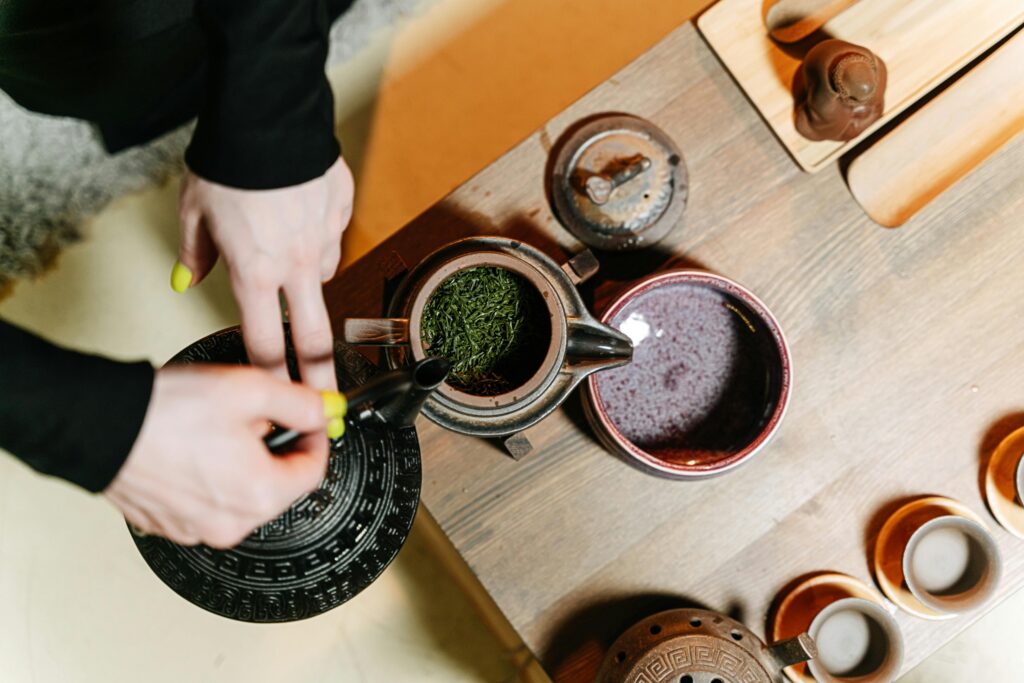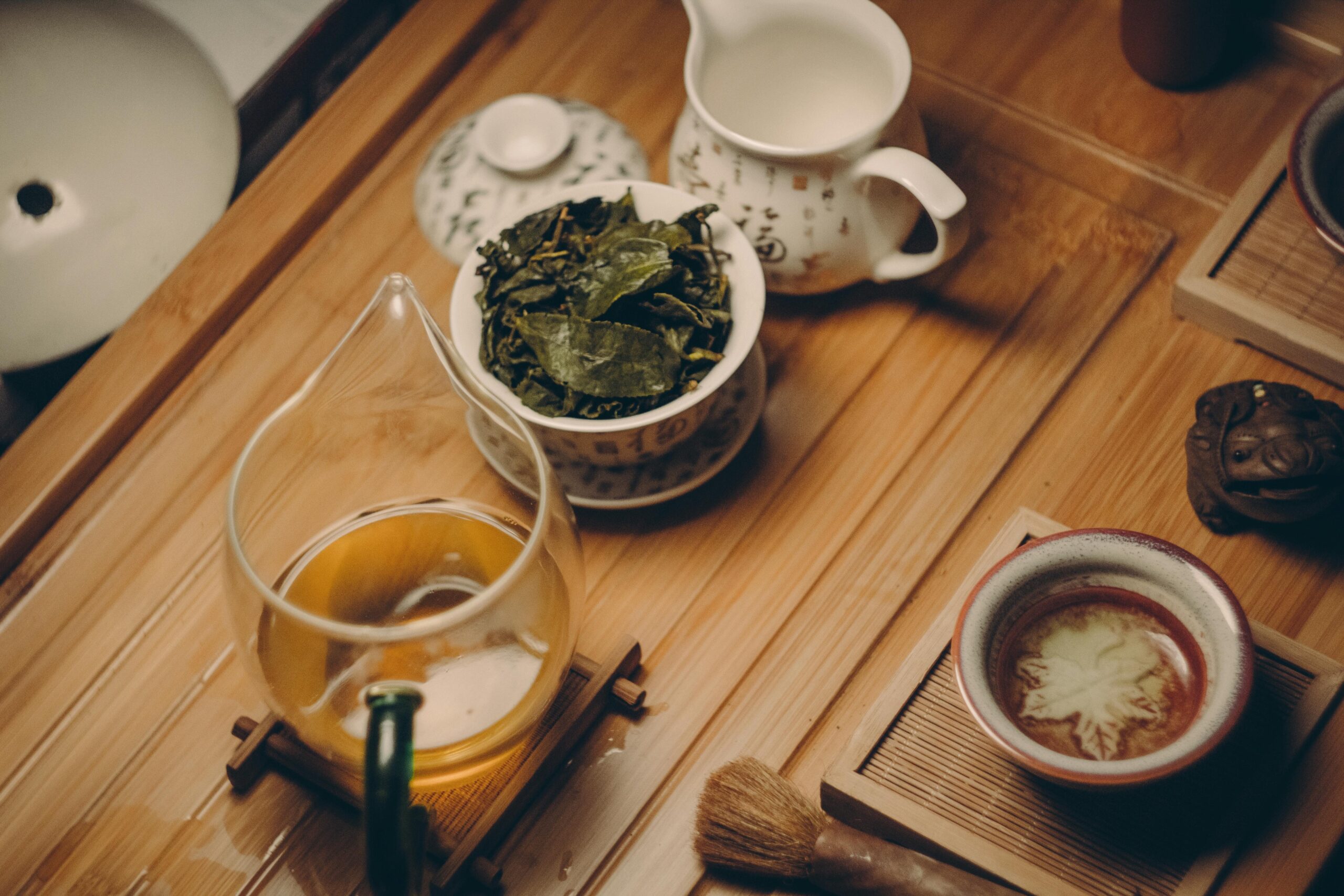Introduction

Polycystic Ovary Syndrome (PCOS) affects approximately 10% of women of reproductive age worldwide, making it one of the most common hormonal disorders. While conventional treatments exist, many women seek natural alternatives to manage their symptoms and restore balance. PCOS herbal tea for hormonal balance emerges as a gentle yet effective solution, offering therapeutic compounds that can significantly impact hormone regulation.
Recent studies reveal that specific PCOS herbal tea for hormonal balance contains bioactive compounds capable of reducing insulin resistance, lowering androgen levels, and supporting overall reproductive health. Furthermore, incorporating these specialized teas into your daily routine provides an accessible, cost-effective approach to managing PCOS symptoms while promoting long-term wellness.
This comprehensive guide explores seven scientifically-backed PCOS herbal tea for hormonal balance options that can transform your health, addresses common concerns, and provides actionable strategies for optimal results.
The Complete Guide to PCOS Teas: 8 Evidence-Based Herbal Remedies That Actually Work
Table of Contents
The Science Behind PCOS and Herbal Medicine
PCOS manifests through insulin resistance, elevated androgen levels, and chronic inflammation. These interconnected factors create a cascade of symptoms including irregular periods, weight gain, acne, and fertility challenges. Traditional herbal medicine offers targeted solutions through compounds that address these root causes.
Clinical research demonstrates that certain herbs contain phytoestrogens, anti-inflammatory compounds, and insulin-sensitizing properties. These natural substances work synergistically to restore hormonal equilibrium without the side effects often associated with pharmaceutical interventions.
Kombucha vs Apple Cider Vinegar: A Comprehensive Health Comparison
7 Game-Changing PCOS Herbal Tea for Hormonal Balance Options
1. Spearmint Tea: The Androgen Blocker

Spearmint tea stands as a powerful ally against excess androgens, the male hormones responsible for unwanted hair growth and acne in PCOS patients. Research published in the Journal of the Academy of Nutrition and Dietetics showed that women consuming spearmint tea twice daily experienced a 15% reduction in testosterone levels in the PCOS group within 30 days.
The tea’s anti-androgenic properties stem from its high concentration of rosmarinic acid and flavonoids. These compounds inhibit 5-alpha-reductase, the enzyme responsible for converting testosterone to its more potent form, dihydrotestosterone (DHT). Clinical studies have confirmed that spearmint herbal tea has significant anti-androgen effects in polycystic ovarian syndrome, making it an evidence-based natural treatment option.
Source: Journal of the Academy of Nutrition and Dietetics Additional Research: PubMed Study on Spearmint Anti-Androgen Effects
2. Green Tea: The Metabolic Booster
Green tea’s exceptional EGCG (epigallocatechin gallate) content makes it invaluable for PCOS management. A comprehensive systematic review published in Reproductive Biology and Endocrinology demonstrated that green tea extract significantly improves insulin sensitivity and reduces inflammation markers in women with PCOS.
Additionally, green tea supports weight management, a crucial factor in PCOS treatment. Studies show that green tea extract had positive effects on weight, blood glucose, insulin, and hormones in women with polycystic ovary syndrome. The combination of caffeine and catechins increases thermogenesis, helping burn approximately 70-100 additional calories daily.
Source: Reproductive Biology and Endocrinology – Green Tea PCOS Review Additional Research: Examine.com Study Summary
3. Cinnamon Tea: The Blood Sugar Stabilizer
Cinnamon’s remarkable ability to improve insulin sensitivity makes it essential for PCOS management. Research demonstrates that cinnamon extract can reduce fasting glucose levels by 10-15% and improve insulin resistance by up to 20%.
The active compound cinnamaldehyde mimics insulin’s effects, facilitating glucose uptake by cells and reducing blood sugar spikes. This mechanism proves particularly beneficial for women with PCOS who struggle with insulin resistance.
4. Red Raspberry Leaf Tea: The Uterine Tonic

Red raspberry leaf tea has earned recognition as a powerful uterine tonic, supporting menstrual regularity and reproductive health. The tea contains fragrine, an alkaloid that strengthens uterine muscles and may help regulate menstrual cycles.
Clinical observations suggest that women consuming red raspberry leaf tea experience more regular periods and reduced menstrual pain. The tea’s high mineral content, including iron and magnesium, further supports overall reproductive wellness.
5. Nettle Root Tea: The Hormone Harmonizer
Nettle root tea offers unique benefits through its SHBG (sex hormone-binding globulin) enhancing properties. Higher SHBG levels mean less free testosterone circulating in the bloodstream, reducing androgenic symptoms like excess hair growth and acne.
Studies show that nettle root extract can increase SHBG levels by up to 30%, effectively binding excess androgens and reducing their biological activity.
6. Licorice Root Tea: The Cortisol Controller
Chronic stress and elevated cortisol levels exacerbate PCOS symptoms by disrupting the delicate hormone balance. Licorice root tea contains glycyrrhizin, a compound that helps regulate cortisol production and supports adrenal function.
Research indicates that licorice root can reduce cortisol levels by 15-20% while supporting healthy testosterone metabolism. However, individuals with high blood pressure should consult healthcare providers before regular consumption.
7. Vitex (Chasteberry) Tea: The Cycle Regulator
Vitex agnus-castus, commonly known as chasteberry, demonstrates remarkable ability to regulate menstrual cycles and support progesterone production. Clinical trials show that 58% of women with irregular cycles achieved normal menstruation within three months of consistent vitex consumption.
The herb works by influencing the hypothalamic-pituitary axis, promoting luteinizing hormone release and supporting the corpus luteum’s progesterone production.
Frequently Asked Questions About PCOS Herbal Tea for Hormonal Balance
How quickly can I expect results from PCOS herbal tea for hormonal balance?
Most women notice initial improvements within 2-4 weeks of consistent PCOS herbal tea for hormonal balance consumption, with significant changes becoming apparent after 8-12 weeks. Hormonal balance requires time, and patience proves essential for optimal results.
Can I combine multiple PCOS herbal tea for hormonal balance options?
Yes, combining complementary herbs often enhances therapeutic effects. However, start with one PCOS herbal tea for hormonal balance variety at a time to assess individual responses before creating blends.
Are there any side effects with PCOS herbal tea for hormonal balance?
While generally safe, some herbs may interact with medications or cause mild digestive upset. Spearmint tea may lower libido in some women, while licorice root can affect blood pressure. Always consult healthcare providers before starting new herbal regimens.
How much PCOS herbal tea for hormonal balance should I drink daily?
Most studies use 2-3 cups daily for therapeutic effects. Begin with one cup daily and gradually increase based on tolerance and response.
Can PCOS herbal tea for hormonal balance replace medications?
PCOS herbal tea for hormonal balance complements conventional treatments but shouldn’t replace prescribed medications without medical supervision. They work best as part of a comprehensive PCOS management strategy.
10 Best Blood Sugar Supplements: Evidence-Based Review & Buyer’s Guide
Scientific Evidence and External Research
The therapeutic benefits of PCOS herbal tea for hormonal balance are supported by extensive peer-reviewed research from leading medical institutions and journals. Key studies include:
- Spearmint Research: Multiple clinical trials published in PubMed and the Journal of the Academy of Nutrition and Dietetics confirm spearmint’s anti-androgenic effects
- Green Tea Studies: Systematic reviews in Reproductive Biology and Endocrinology demonstrate metabolic improvements
- Combination Studies: Research published in the Journal of Ovarian Research shows enhanced benefits when combining herbal extracts
These evidence-based findings provide confidence in recommending PCOS herbal tea for hormonal balance as part of comprehensive PCOS management strategies.
Maximizing Your PCOS Herbal Tea for Hormonal Balance Benefits
Timing Matters
Consume hormone-balancing teas between meals to optimize absorption. Morning consumption of metabolic teas (green tea, cinnamon) supports daily energy metabolism, while evening relaxation teas (red raspberry leaf, nettle) promote restful sleep.
Quality Considerations
Choose organic, high-quality herbs to ensure maximum potency and minimize exposure to pesticides. Loose-leaf teas typically contain higher concentrations of active compounds compared to tea bags.
Consistency Creates Results
Establish a daily tea ritual to ensure consistent intake. Set reminders or incorporate tea preparation into existing routines for better adherence.
Additional Lifestyle Strategies for PCOS Management

While PCOS herbal tea for hormonal balance provides significant benefits, combining them with other evidence-based strategies amplifies results. Regular exercise improves insulin sensitivity by 25-30%, while stress management techniques reduce cortisol levels and support hormonal balance.
Dietary modifications, including reducing refined carbohydrates and increasing fiber intake, work synergistically with PCOS herbal tea for hormonal balance to optimize metabolic function. Sleep optimization also plays a crucial role, as inadequate rest disrupts hormone production and increases insulin resistance.
Creating Your Personal PCOS Herbal Tea for Hormonal Balance Protocol
Developing an effective PCOS herbal tea for hormonal balance protocol requires understanding your specific symptoms and goals. Women with high androgen levels benefit most from spearmint and nettle root varieties, while those with insulin resistance should prioritize green tea and cinnamon options.
Track your symptoms, menstrual patterns, and energy levels to identify which PCOS herbal tea for hormonal balance provides the greatest benefits. This personalized approach ensures optimal results and helps maintain long-term consistency.
Conclusion
PCOS herbal tea for hormonal balance offers a natural, scientifically-supported approach that empowers women to take control of their health journey. These seven powerful varieties—spearmint, green tea, cinnamon, red raspberry leaf, nettle root, licorice root, and vitex—provide targeted benefits that address PCOS at its root causes.
Success requires consistency, patience, and a holistic approach that combines PCOS herbal tea for hormonal balance with healthy lifestyle practices. By incorporating these evidence-based strategies into your daily routine, you can experience significant improvements in hormone regulation, symptom management, and overall quality of life.
Remember that every woman’s PCOS journey is unique, and what works for others may require modification for your specific needs. Start slowly with PCOS herbal tea for hormonal balance, listen to your body, and celebrate small victories along the way. With dedication and the right herbal allies, achieving hormonal harmony becomes an attainable goal rather than an impossible dream.




